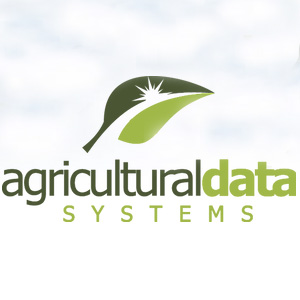From SNAP benefit reform and fraud crackdown to the continuation of mass deportations with “no amnesty,” the USDA’s newly launched National Farm Security Action Plan touches on several issues that may impact the fresh produce industry.
Agriculture Secretary Brooke Rollins held a press conference Tuesday to unveil the seven-point plan, which the USDA says seeks to position American agriculture as a key element of national security and to strengthen the domestic food supply.
Among the plan’s action items: “Protect U.S. nutrition safety net from fraud and foreign exploitation.” The USDA says billions have been stolen to date from the Supplemental Nutrition Assistance Program (SNAP) by foreign crime rings.
Rollins held a virtual press briefing Monday evening in advance of Tuesday’s conference, during which she told reporters: “We absolutely have to get all illegal aliens off of our SNAP programs and make sure that taxpayer funded dollars are being spent the way that they were intended.”
The SNAP program is facing major reform from the “Big Beautiful Bill,” which intends to slash billions from program over the coming years.
As part of the SNAP reforms, Rollins says for the first time in USDA history, it is calling on “absolute” and “complete transparency” of data sharing for SNAP programs across the country.
“The largest program here at USDA is not a farming program; it’s actually the SNAP or the food stamp program,” Rollins told reporters Monday, adding that the USDA spends $405 million a day across its nutrition programs.
“And vulnerabilities within that payment system — our payment system — are a persistent target of transnational criminals and gangs,” she said. “Law enforcement has identified a troubling trend of transnational criminal organizations stealing from the poor and the American taxpayer by cloning point of sale devices and card skimming.
“Just based on what we have seen and some pretty major stings that have happened in the last few months by the Secret Service and by DOJ on SNAP fraud, [it’s] equaling tens upon tens upon tens of millions of dollars — just one case after another,” she added.
To address these vulnerabilities, Rollins says the USDA is actively ensuring no funds across the department’s 16 nutrition programs are being used to fund activities related to terrorism or criminal activity.
“In addition, the department will disqualify authorized retailers that are complicit in SNAP fraud or otherwise demonstrate a lack of responsible business behavior to transact purchases made with SNAP,” Rollins continued. “We’re also conducting regular assessments to identify risks and security vulnerabilities to the food and agriculture critical infrastructure sector, including transport vulnerabilities.”
Rollins says the USDA will be looking at the situation every single day, and that she thinks, ultimately, the reforms will be helpful to those who really need SNAP the most.
New Dietary Guidelines
Also on the nutritional horizon, new dietary guidelines are expected to land in the next month or two, said Rollins.
“Most people don’t realize what an important document or set of guidelines that is,” she said Monday. “It drives almost all of the food purchasing for schools, for prisons, for the different nutrition programs, etc.
“We are both, Bobby [Kennedy] and I, are very encouraged that we’re going to be able to change the game in terms of the quality and the type of food that we are feeding, especially to our schools,” she continued.
Rollins says they’re also working to get more smaller farms involved and tap into more locally sourced foods for federally funded nutrition programs.
Mass Deportations to Continue
Much of agriculture, including the fresh produce industry, has been feeling the effects of the Trump administration’s ongoing ICE raids and immigration crackdown since they began in June. During a Q&A at Tuesday’s press conference, Rollins fielded a question from a reporter who asked about mass deportation’s impact on the farm industry and if there would be amnesty for agricultural workers.
“There’s been a lot of noise in the last few days and a lot of questions about where the president stands and his vision for farm labor,” said Rollins. “The first thing I’ll say is, the president has been unequivocal that there will be no amnesty, and I think that’s very, very important.”
Rollins went on to say that Trump has always been of the mindset that “at the end of the day, the promise to America to ensure that we have a 100% American workforce stands, but we must be strategic [in] how we are implementing the mass deportation so as not to compromise our food supply.”
The ag secretary pointed to automation, government reform and tapping American workers as potential solutions to the labor crisis.
“When you think about the 34 million able-bodied adults in our Medicaid program — there are plenty of workers in America … So, no amnesty under any circumstances,” she said. “Mass deportations continue, but in a strategic and intentional way as we move our workforce toward more automation and toward a 100% American workforce.”
Your next read:



















